

Join SCS Engineers at Biogas Americas 2025, April 28-30th, at the Colorado Convention Center in Denver, CO. This is the largest biogas conference and tradeshow in North America and the annual conference of the American Biogas Council. This must-attend event brings together industry leaders, decision-makers, and innovators to drive the future of biogas through networking, training, and knowledge-sharing. With a focus on growing the biogas market and advancing sustainable solutions, Biogas Americas provides a valuable opportunity to connect with experts, explore cutting-edge technologies, and gain insights into industry trends. Be sure to visit SCS Engineers at Booth #1016 to learn more about our work in biogas and renewable energy. We look forward to seeing you there!
Speak with SCS Engineers solid waste experts and SCS Engineers field services professionals at Waste Expo, May 6-9, in the Las Vegas Convention Center. Come visit us at BOOTH 2907.
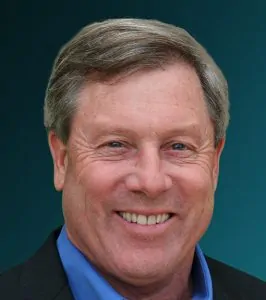
SCS Engineers expert, Tom Rappolt, will lead a compelling session titled “Private Equity, Friend or Foe? Battling Odor Class Action Lawsuits. Delve into the intricate dynamics of private equity involvement in waste management and the legal complexities surrounding odor-related class action lawsuits.
Session Name: Private Equity, Friend or Foe? Battling Odor Class Action Lawsuits
Session Date and Time: Tuesday, May 7, 2024 4:00 pm – 5:00 pm
Presenter and Panelist: Tom Rappolt
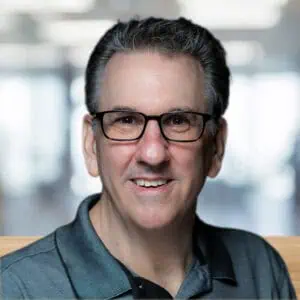
Unveiling the Soil Revolution: Navigating Permitting Challenges, Embracing Technologies, and Integrating AD in Composting. Join SCS Engineers, expert Pat Sullivan as he explores the forefront of composting innovation and the intricacies of regulatory hurdles.
Session Name: Composting: Permitting Challenges, Technologies, Integrating AD
Session Date and Time: Monday, May 06, 2024, 1:30 PM – 3:15 PM
Session Location: Room: W222-223
Presenter and Panelist: Pat Sullivan
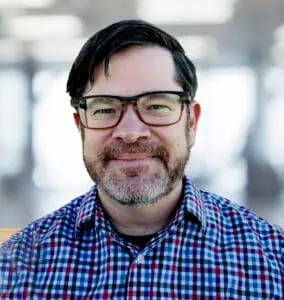
Dive into the realm of organic waste management with Jeff Phillips from SCS Engineers as he sheds light on ‘Stakeholder Strategic Planning for Organics Management in Iowa.’
Session Name: Stakeholder Strategic Planning for Organics Management in Iowa
Session Date and Time: Tuesday, May 7, 2024
Session Location: Track 2, Room: W223, 8:00 – 9:30 am
Presenter and Panelist: Jeff Phillips
At Waste Expo, you can connect with 13,000 of your peers and over 600 exhibitors. This is one event that pays dividends all year long. Preview the latest vehicles, tune in to the latest technology, and learn the latest curriculum to improve the environment. For over 50 years, WasteExpo has provided an outstanding event experience in the solid waste, recycling and organics industry.
Numerous summits will be co-located with Waste Expo, including the Food Recovery Forum & Organics Recycling program, where you can interact with SCS Engineers Organics Management and Food Recovery experts. You can also speak to our experts at Sustainability Talks and several other exciting programs.
Click here for more conference details and registration information.
We hope to see you there!
Meet SCS Engineers professionals at BOOTH 403 at the Air & Waste Management Association’s (A&WMA) 116th Annual Conference & Exhibition (ACE 2023), June 5-8, 2023, at the Hyatt Regency in Orlando, Florida.
“Smart Growth: Balancing Development, Restoration, and Resiliency” is this year’s theme. Florida’s abundant coastline, diverse ecosystem, and perennial vacation destination faces unique challenges with respect to impacts from weather, sea-level rise, and other pressures brought on by a growing population. Florida is committed to meeting this challenge through many diverse minds working to plan and adapt to change—in short, to grow smarter and build a more resilient world. The Air & Waste Management Association (A&WMA) will welcome the world’s leading environmental experts, thinkers, and practitioners to Orlando to address environmental challenges, discuss strategies and solutions to climate change, sustainability, new contaminants, and other issues that call for balancing growth with sustainability and resiliency.
Several professionals from SCS Engineers are presenting at the conference, including:
ACE 2023 will unite professionals from major industry, private sector, consulting, government and academia for an exciting event that will explore the ever-expanding environmental challenges and provide solutions to becoming and remaining resilient for tomorrow. This is an ideal opportunity for professionals to share their knowledge to advance the industry, and for environmental companies to showcase their products, services, and solutions with professionals motivated to build a more resilient and sustainable world.
Meet SCS Engineers professionals and visit us at BOOTH 111 at SWANA’s SOAR (Sustainability, Operations, Action, Resources) Conference, April 17-20, at the Georgia World Congress Center in Atlanta.
SWANA’s new premier technical spring conference, themed “Technical Solutions for Resource Management,” will bring together industry professionals from ALL disciplines of the resource management community. Hear presentations by SCS professionals, including
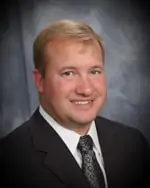 Nathan Hamm (co-presenting with Nathan Mayer of Solid Waste Authority of Palm Beach County and Manuel Hernandez (formerly of SCS) of Progressive Environmental Services): “Leachate Treatment and System Maintenance Issues” [Wed, April 19 (10:00 am – 10:45 am)]
Nathan Hamm (co-presenting with Nathan Mayer of Solid Waste Authority of Palm Beach County and Manuel Hernandez (formerly of SCS) of Progressive Environmental Services): “Leachate Treatment and System Maintenance Issues” [Wed, April 19 (10:00 am – 10:45 am)]Join professionals in Collection & Transfer, Landfill Gas & Biogas, Landfill Management, Waste Conversion & Energy Recovery, and Sustainable Materials Management at this enhanced and productive technical summit. Spend a few days diving deep into technical education, developing new business connections at networking events and joining game-changing conversations with experts in North America. Most importantly, you’ll leave SOAR with actionable, fact-based solutions to implement in your facilities.
Delivering practical solutions to the solid waste industry’s most difficult problems, SWANA SOAR showcases the promising technologies, ideas, and solutions that transform waste into a resource. As SWANA’s premier technical conference, SOAR connects experts and problem solvers in industry-changing conversations about your most complex challenges.
Click for more details and registration information
Planning your RNG pipeline design requires a review of how the project might impact land use, archaeologic resources, endangered resources, floodplains, wetlands, and soil erosion. The linear nature of pipeline projects often requires permits from multiple agencies, transportation authorities, and railroads. Getting the agencies involved early and identifying review timeframes will help keep your project on track.
Betsy and Andy will present two case studies for RNG pipeline projects where multiple permitting agencies were involved. Each project presented unique challenges that required additional coordination with local, state and federal agencies as well as the Department of Transportation and railroad operator. They share the obstacles faced and how you can overcome or avoid them to keep your project on schedule.
Conference Information and Registration
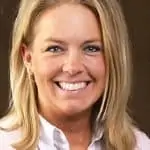
Betsy Powers, PE, is a senior project manager/civil engineer with over 20 years of consulting experience in civil and environmental engineering at SCS Engineers. She has extensive experience in the solid waste field and is currently managing the pipeline permitting and design for two RNG projects. Her experience includes design, permitting, and construction of municipal and industrial solid waste landfills, as well as recycling and composting facilities. She managed the civil site design for Wisconsin’s first utility-scale solar photovoltaic (PV) system on a closed industrial landfill.
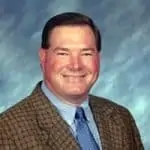
Andrew Zikeli is a senior biogas project specialist with over 8 years of biogas to renewable natural gas project experience and over 25 years of consulting experience in environmental compliance and permitting. He has extensive experience in RNG project development, plant design, permitting and commissioning, and is currently managing pipeline installation for two Wisconsin RNG projects.
Biogas, CNG, and RNG case studies , information and resources here
In September the City of Bangor will formally move over to a new arrangement in which residents will throw all of their recycling in with their trash and leave the mixed waste to be picked up from the curbside every week, as now happens with trash.
Bangor will also close their local recycling station as part of the city’s switch to a new integrated waste conversion plant in Hampden developed by Coastal Resources of Maine with Fiberight technology. The new facility includes a materials recovery facility (MRF), organic processing, plastics processing, anaerobic digestion (AD) and wastewater treatment. The integrated technology is intended to increase recycling rates without the need for extensive outreach programs and is easier for customers to use. According to Coastal Resources of Maine, the benefits are:
The advanced technologies are undergoing final testing at the Hampden, Maine facility, and are already in use at automated material recovery facilities in the United States and in Europe. The end product is cleaner and provides more diverse types of materials that can then be reused to create new products.
The Hampden facility’s advanced MRF has a high degree of separation, recovery, and monetization of commodity products, and then employs additional processes for generating clean cellulose, engineered fuels, and biogas from traditionally non-recyclable materials. Hired for the firm’s technical expertise and experience planning large municipal solid waste and biogas programs and facilities, SCS provided an in-depth examination and analysis of the technologies, program sustainability, and potential economic impacts of the facility.
The facility will serve 116 municipalities and public entities represented by the Municipal Review Committee, a non-profit organization that currently manages the waste disposal activities in Eastern and Northern Maine. The facility is planning to start accepting waste from its municipal customers shortly.
“With the planning and cooperation of many, Fiberight’s providing a truly sustainable solution in Maine while solving several challenges when consumers separate their recyclable materials and eliminating contamination,” stated Bob Gardner, SCS Engineers Senior VP. “The facility is capable of reusing nearly 150,000 tons of what formerly went into a landfill, is processing more municipal solid waste into high-value commodities, and is helping local municipalities and private waste haulers offset the cost of recycling.”
SCS Energy announced today the expansion of their renewable energy programs with the support of new team member Todd Stewart, PE, PMP. SCS has one of the longest and successful biogas and renewable energy practices in the United States. Stewart will support the expanding renewable energy programs for the waste industry, working out of the firm’s Pleasanton, California office.
Stewart, a Senior Project Manager, brings more than 30 years of experience managing complex solar and biogas renewable energy, anaerobic digestion, gas pipeline, and compressor station projects executed efficiently and cost-effectively for his clients and their stakeholders. His technical background in waste to energy, advanced composting systems, solar and conventional power generation, gas transmission and storage, and plant operations brings valuable skills to SCS’s clients planning to invest in the use of renewable energy to control the cost of operations and meet environmental compliance and responsibilities.
Stewart’s background spans design engineering, construction management, operations and maintenance engineering, and identifying and resolving environmental issues, and he is experienced with regulatory processes specifically CEQA and NEPA. He has demonstrated expertise in conceptual project development, FEED process, and the technical and fiscal management of large infrastructure.
“Todd has developed and coordinated some of the largest combined solar and alternative power generation projects in the world,” stated Steve Hamilton, senior vice president of SCS Energy. “We’re fortunate to be putting his acumen to work for our clients.”
Stewart is a licensed Professional Engineer in California and a Certified Project Management Professional. He is the past President of the California Society of Professional Engineers and a member of the National Society of Professional Engineers and the Project Management Institute. He earned his Bachelors of Science in Mechanical Engineering from the South Dakota School of Mines & Technology.
Reprinted from SWANA Alert:
On Tuesday, August 1, the U.S. Environmental Protection Agency (EPA) will be holding a public hearing in Washington, DC on the proposed rule, ‘‘Renewable Fuel Standard Program: Standards for 2018 and Biomass-Based Diesel Volume for 2019.’’ In keeping with SWANA’s previous advocacy efforts in regards to the renewable fuel standard (RFS) program, we intend to submit a short written statement to be introduced into the hearing record.
The RFS program is a national policy that requires a certain volume of renewable fuel to replace or reduce the quantity of petroleum-based transportation fuel, heating oil or jet fuel. These amounts are set by EPA each year and the proposed rule will set those levels for 2018. One of the four fuel category amounts that will be set by the RFS is cellulosic biofuels, which includes compressed and liquefied renewable natural gas (RNG) produced from landfill biogas.
As a member of the SWANA Core Advocacy Group, we are notifying you that SWANA intends to submit comments to EPA on the RFS program as part of the August 1st hearing, and in post-hearing comments that EPA will be accepting through August 31st as necessary. These comments will support the testimony of other solid waste industry leaders and ask the EPA set the 2018 RVO standard for cellulosic biofuel at a level that takes into account increased generation of fuel from both existing registered projects and from new projects that will begin generating fuel in 2018. By setting the levels based upon actual current and future capacity instead of on historical data and trends, EPA will ensure that the levels set actually spur demand consistent with increased production. A failure to set the levels high enough would result in a lack of appropriate demand for these fuels, which would undercut the purpose of the RFS program
By setting the levels based upon actual current and future capacity instead of on historical data and trends, EPA will ensure that the levels set actually spur demand consistent with increased production. A failure to set the levels high enough would result in a lack of appropriate demand for these fuels, which would undercut the purpose of the RFS program.
If you or the Chapter or Technical Division members have any questions or concerns about these comments, or if you would like to discuss them further, please contact David Biderman at SWANA.

Thank you for your friendship, your business, and the opportunity to serve you.
Under section 211 of the Clean Air Act, the Environmental Protection Agency (EPA) is required to set renewable fuel percentage standards every year, including for cellulosic biofuel, biomass-based diesel, advanced biofuel, and total renewable fuel. In November the EPA established the 2017 standards, which will apply to all motor vehicle gasoline and diesel produced or imported in the year 2017. Most biogas produced qualifies as Advanced Cellulosic Biofuels, or the D3 category, which is the same as cellulosic (non-corn) ethanol. For the last several years, nearly 95% of the advanced cellulosic fuel generated has been from digester and landfill biogas, not cellulosic ethanol.
The final rule also establishes the four percentage standards applicable to producers and importers of gasoline and diesel, based on volume requirements. Renewable Fuel Volumetric Obligations (RVOs) are expected to continue driving the market to overcome constraints in the renewable fuel distribution infrastructure. This, in turn, could lead to substantial growth over time in the production and use of renewable fuels. If a renewable fuel-producing project uses a Renewable Fuel Standard (RFS)-approved pathway and is registered with EPA, the project can generate credits that can be sold to produce additional revenue. The value of these Renewable Identification Numbers (RINs) credits fluctuates based on market supply and demand.
The 2017 RVOs finalized in November for 2017 will help drive the market demand for these credits. Producers of biogas want the demand for RVO to be higher than the supply of biogas that will actually be produced and used as vehicle fuel during the year. This will protect the value of RINs, encouraging revenues for biogas-vehicle fuel projects and financing for new projects. Digester and landfill biogas normally have the highest value of all RINs.
Overall, EPA’s 2017 standards recognize the important role that biogas plays among all advanced biofuel producers, including cellulosic ethanol, and the role biogas will continue to play for generating renewable fuel for US vehicles.
SCS Engineers’ National Experts are available to answer your questions about the impact of the 2017 standards on your business and current and potential projects. Click here to contact SCS.